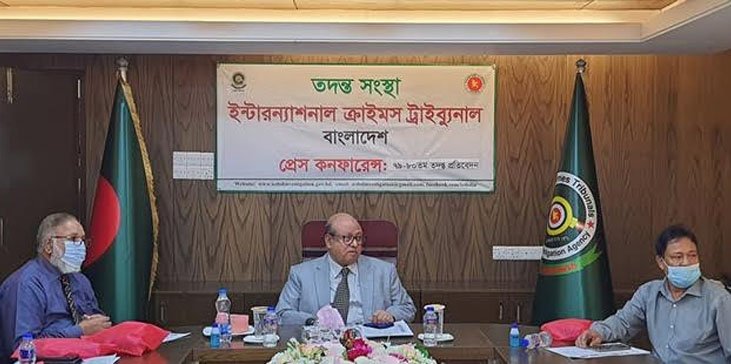Sanaul Haque, the coordinator of the International Criminal Tribunal for the former Yugoslavia (ICTY), said Jamaat-e-Islami should be tried in a public court as a war crimes organization organized in 1971.
The coordinator of the investigation agency said this while publishing the full report of two separate cases of crimes against humanity during the war of liberation. He spoke to reporters at the company’s office in Dhanmondi. Sanaul Haque also said about Jamaat at a press conference on the investigation report against 13 people from Kurigram in one case and four people from Satkhira in another case for crimes against humanity.
At the press conference, the issue of the trial of Jamaat-e-Islami as an organization accused of crimes against humanity during the war of liberation came up. Then Sanaul Haque said that the trial of Jamaat-e-Islami as an organization is an important trial of the International Criminal Tribunal. This trial should begin as soon as possible. He said that when the organization is tried, the members of the organization and the people involved are also tried. The responsibility of leading the organization comes.
The coordinator of the International Criminal Tribunal for the former Yugoslavia (ICTY) said that militancy was on the rise in Bangladesh, and many people were trying to fish in murky waters with the help of bigotry. He said that to eradicate them, the trial should be held in public to unveil the nature of Jamaat.
The tribunal’s investigative agency has so far released full investigation reports in 80 cases.
The International Crimes Tribunal was formed to try those involved in crimes against humanity during the liberation war.
In the general elections held on December 29, 2008, one of the main political manifestos of the Awami League-led alliance was to start the trial of war criminals. In that election, they won with an absolute majority. As promised, the proposal to try the war criminals was tabled in the Parliament on January 29, 2009, and it was unanimously accepted. Finally, 39 years after the independence of Bangladesh, a tribunal, a panel of lawyers, and an investigation body were formed on March 25, 2010, to try those accused of crimes against humanity during the war of liberation.
Investigative agencies report investigations in 80 cases.

